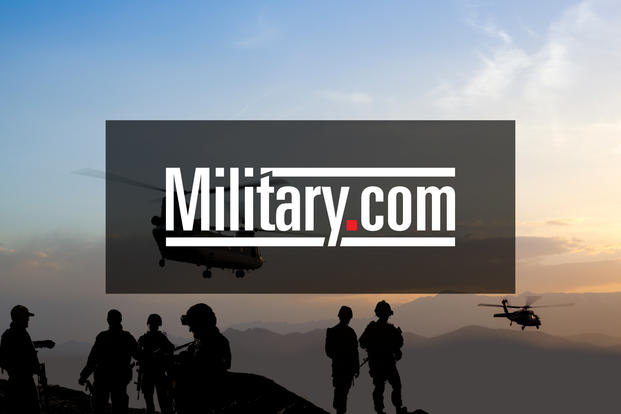Tal Afar will be targeted next in the roll-up of remaining ISIS enclaves in Iraq following victory in the terror group's last major stronghold of Mosul, Army Lt. Gen. Stephen Townsend said Tuesday.
Townsend, the U.S. coalition commander for Iraq and Syria, said he could not confirm reports that ISIS leader Abu Bakr al-Baghdadi, who proclaimed the creation of a "caliphate" in Mosul's Al Nuri grand mosque in June 2014, had been killed.
"I don't have a clue, simple as that," he said of the most recent report of Baghdadi's possible death from the Syrian Observatory of Human Rights, a monitoring group based in London.
"Don't have a reason to believe he's alive, don't have a reason to believe he's dead," Townsend said. "I am unable to confirm or deny where he is or whether he is alive or dead."
In a briefing to the Pentagon from Baghdad, Townsend, commander of Combined Joint Task Force-Operation Inherent Resolve, said control of Mosul by the Iraqi Security Forces (ISF) is complete with the exception of a few small, isolated groups of ISIS holdouts.
He said one group of holdouts contacted an ISF commander Monday seeking to bargain on terms of surrender but was told that "unconditional surrender" was the only choice.
Townsend said the Iraqi commander immediately suspected a ploy that would allow the ISIS fighters to get close to ISF positions to launch an attack. The ISIS fighters were told to come out in small groups, but they rejected that offer.
"We saw later in the day a wave of suicide attacks," he said.
Townsend said he received word Tuesday that the ISIS holdouts again were seeking to surrender. He said the decision belongs to ISF commanders, but he sees no reason "to entertain any demands. Unconditional surrender is the only option."
The ISF and its Counter-Terror Service units, which led the way in the street fighting, will need a respite to recover and refit after the grueling nine-month siege of Mosul, but Tal Afar to the west will be their next target, Townsend said.
Assuming success in Tal Afar, which has already been encircled by government forces, the ISF would then move against ISIS enclaves in Hawija, in Kirkuk province north of Baghdad, and in areas still controlled by ISIS in western Anbar province, Townsend said. "How long it takes, I wouldn't guess. We'll be at it 'til it's done."
He gave no timeline for the start of the additional operations, saying the main concern currently is consolidating the victory in Mosul and establishing security for returning residents.
Townsend said U.S. troop withdrawals are not under consideration following the victory in Mosul.
"This fight is far from over," he said. "So I wouldn't expect to see any significant change in our troop levels in the immediate future because there's still hard work to be done by the Iraqis and the coalition."
Much of the hard work will be political, stabilizing secured areas and establishing security that draws local support to avoid the re-emergence of the sectarian disputes that splintered Iraqi society and set the conditions for ISIS to push to the gates of Baghdad in June 2014, he said.
Kurdish Peshmerga fighters were instrumental in securing the eastern approaches to Mosul for the ISF, but the general said the Kurds' intention to hold a referendum on independence for their region in September raised concerns that Iraq could fracture into Shia, Sunni and Kurdish factions.
"I think all of us can look back to the end of 2011 when the U.S. and coalition forces left Iraq the last time and saw what played out in the intervening three years," Townsend said. "I don't think we want to replay that. There's a lot of work to be done in that area."
In a statement from the White House on Monday night, President Donald Trump hailed the victory and gave credit to his administration for accelerating the campaign against ISIS.
"We have made tremendous progress against ISIS -- more in the past six months than in the years since ISIS became a major threat," Trump said. "The victory in Mosul, a city where ISIS once proclaimed its so-called 'caliphate,' signals that its days in Iraq and Syria are numbered. We will continue to seek the total destruction of ISIS."
Townsend attributed the advances against ISIS to the "turnaround" in the ISF from the summer of 2014 when its troops dropped their equipment, shed their uniforms and fled at the appearance of ISIS fighters in pickup trucks.
He said the ISF's success came from the training provided by the U.S. and coalition troops, and the advise and assist support the ISF received from U.S. troops in the field, in addition to the relentless air campaign carried out by the coalition.
The ISF "that's on the field now -- is that army different than the one that was struggling to hold their capital three years ago? It certainly is," Townsend said.
Whether the ISF can maintain its current unity of purpose will depend on "their willingness to promote leaders on ability rather than political affiliation. I'm optimistic about it," he said.
-- Richard Sisk can be reached at Richard.Sisk@Military.com.
Related Video:
Five Things You Don’t Know: ISIS
Don't Miss a Single Military.com Story
To read the full article and get exclusive benefits, sign up today.
It’s FREE
Why am I seeing this? Visit our FAQs



























